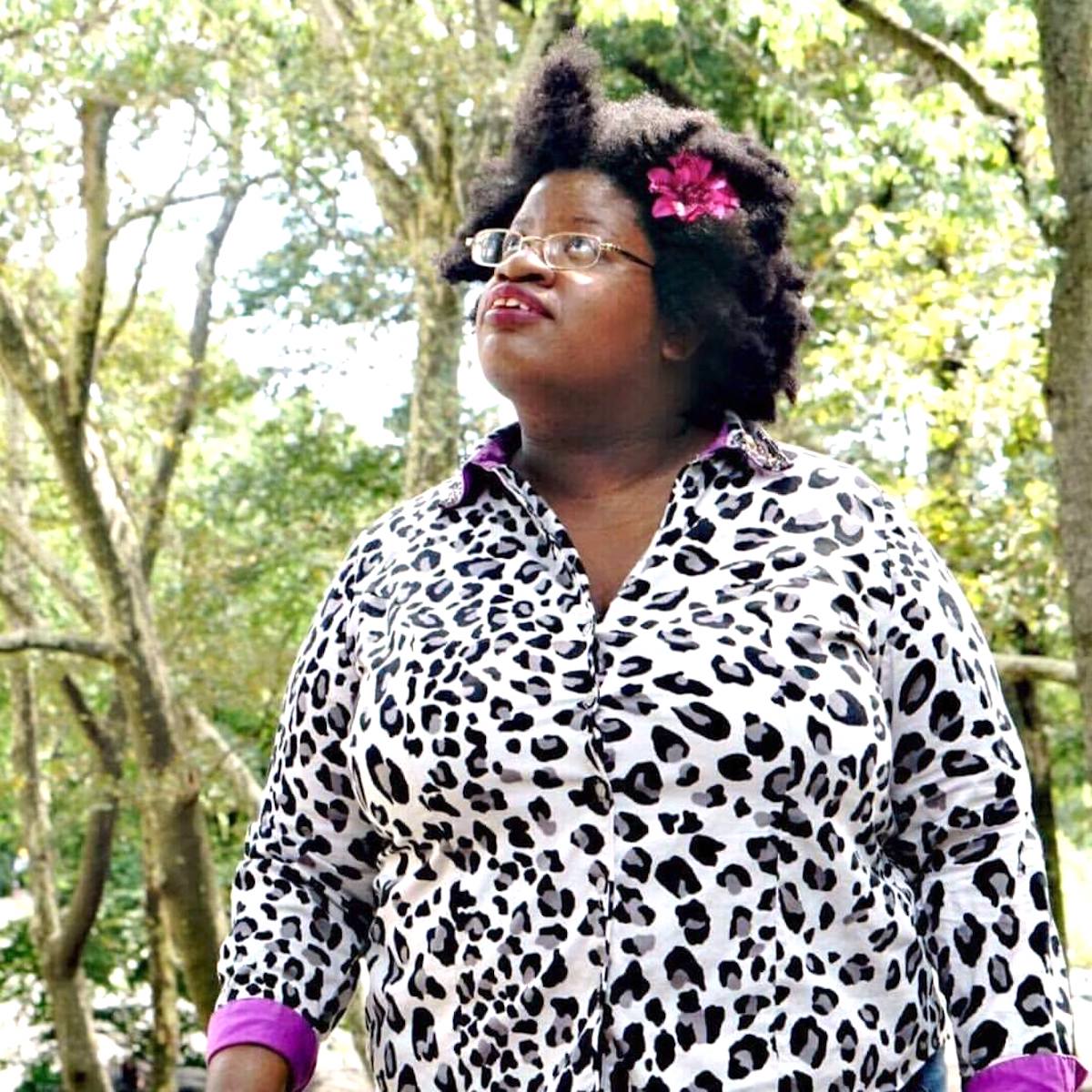By Denarii Grace
One of the myths about bi-plus identity and experience that I loathe the most is the belief that dating is easy for us and we’re constantly in the streets (and in the sheets) fucking. Not only does it erase the existence of asexual and aromantic bi-plus people, but it completely disregards the reality of desirability politics – the tired-ass idea that some people are more worthy of dating and fucking, based on race, skin color, body shape and size, (dis)ability, class, gender expression, immigration status, sexual orientation, age, and a whole lot more.
I’m a 31-year-old, very brown-skinned, Black, fat, multiply disabled, non-binary, femme, bisexual/queer, witchy woman. I can count on one hand the number of dates I’ve been on in my lifetime and still have fingers left over. I can count the number of times I’ve had sex (of any kind) in my lifetime and still have fingers left over, too.
I won’t lie to you, reader: my sexless, dateless, romantically loveless life is caused by a number of factors. Dating (at least the way I would like to date) is hard when you’re very poor. I have very unstable income; what income I do have is barely enough to pay a Verizon bill or buy groceries. I didn’t date or have sex at all until college; in high school, I was more focused on being a “good Christian” and graduating third in my class. One of my many high school nicknames was “Jesus.”
I’m not kidding.
I live with my mom, mostly due to circumstances outside of my control (that’s an essay for another place and time). I love her, and vice versa, but it cramps my style when we – two whole-ass adults – live in a one-bedroom apartment. Sometimes life is just hard – physically, mentally, emotionally – and dating drama is the last thing on my mind. And there have been times when I purposely wasn’t dating or having sex, for these and other reasons.
But make no mistake: I would have many more opportunities if I were thin/slim thick, able-bodied and able-minded, light or white-skinned, anything but Black (but especially white), straight, middle or upper class. Statistics on the experiences of online dating for Black women recently came up again on Black Twitter in response to an excerpt from Issa Rae’s 2015 satirical book, The Misadventures of Awkward Black Girl. The fact of the matter is this: it’s hard out here for us, regardless of other circumstances. And it’s even harder for those of us Black and not cisgender men who are the most marginalized: trans, non-binary, single parents, queer, disabled, brown – and especially dark-skinned, fat, poor, non-Christians (most especially those from non-Abrahamic religions), etc.
My body is all wrong: my skin is too dark, my belly is too big, my butt isn’t big enough, I have stretch marks and cellulite, I don’t shave, I have relatively short, kinky-curly hair that you can’t just run your fingers through, I have a big nose and small eyes, and many times you can see me using my cane in public.
Of course, in my mind, none of these things are bad. In fact, I love my body now more than I ever have in my entire life, thanks to my discovery several years ago of Health at Every Size, fat liberation, radical Black love spaces, and disability justice. But I must wade through a society that finds fault with all of those things and more. And that shit is hard.
And what’s more, those desirability politics didn’t just come out of nowhere. They are the direct result of a society that devalues all of those marginalized identities in every aspect of life: healthcare, education, the judicial and prison systems, government and politics, religion, and more.
This means that the work of liberation for bi-plus folks – people like me – is tainted by a world that values people like me the least. As a bi leader myself, I know many wonderful, insightful people doing work tirelessly, with little to no pay, for our diverse community. It’s uplifting and encouraging to know so many bi+ rock stars: various ages, races, skin colors, bi+ labels, relationship orientations, from very vanilla to copiously kinky, various income levels (though mostly poor, if I’m honest), cis and trans/non-binary/agender, from various parts of the world, of various faiths (or lack thereof), and of various shapes, heights, and sizes. We are truly beautiful in that way.
But the truth is, it can be hard to be in my body in this community as well as outside of it. It’s rare that I see myself, my body, in bi-plus spaces, in campaigns, in parades, in queer media. It’s tiring, it’s demoralizing, it’s anger-inducing. If my kind of bi doesn’t exist in these and other spaces then I’m reminded, painfully, that I’m not supposed to exist. It’s a cruel joke that my ancestors sent me here with so much magic, only to feel like it’s constantly being snuffed out. Of course, I know that no one can actually steal my magic, but the weight of living in this world often makes it hard to conjure the good.
So I just curl my big, Black, bi body into a ball under the covers and watch Buffy, retreating into a world in which magic reveals, saves, and heals.
Denarii Grace is a Black, bisexual, non-binary, proudly fat, multiply disabled, poor, femme woman. She’s a blues singer-songwriter, poet, freelance writer, editor (non-fiction editor at The Deaf Poets Society), screenwriter, and public speaker/educator/activist. They coined the term “exogender” to describe their (a)gender experience.

